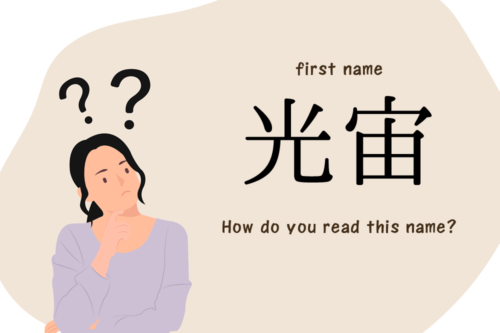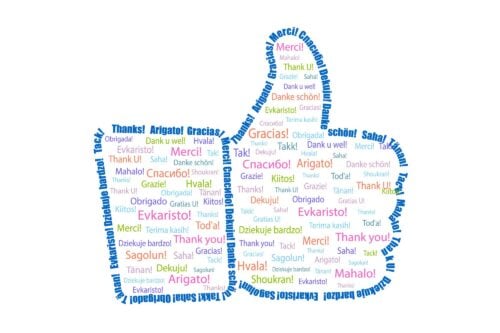Share this link via
Or copy link
Below are navigation links that will take you to the main text and navigation menus.
26,551 first names, 70,620 last names, 333,585 kanji variations.
one of the best Japanese name search tools for your baby!

The website 明治安田生命 releases the rankings of “the most popular kanji for names” every year.
Every single kanji has its meaning, therefore, parents think carefully about which kanji to use for naming their child. Let’s find out what was the most popular kanji used for naming in 2019.
Contents
These top five kanji are in no particular order from last year! This kanji will be combined with other kanji to make a name.
Names with large scale impressions, such as “太”, “翔”, “大”, and “斗” rank among the most popular.
“太” is the number one most popular kanji used for naming a boy! The kanji “太” meaning “big”, “strong”, or ”thick” is a classic in boys’ names. This kanji gives a youthful and boyish image, so it is not used for girls. “太” is also popular because it is used in the kanji for the sun (太陽).
“太” is often used at the end of a name, as in “~太 (~ta).
These days, “太” has become so popular that other kanji is used instead with the same reading such as “汰”, “多” or “大”. (meaning – 汰: select/ 多: many, numerous/ 大: big, strong)
Names with “翔” became popular in the 1980s and are still very popular today.
The word “翔” means “flying” and from this image, it creates a strong image of a person who flies toward his dreams and hopes, which is why it is so popular today.
If the name is just “翔”, it’s pronounced “Shō” and is also very popular as a single letter name.
Besides, it can also be used at the end of a name by making it read “~to”. Here are some examples.
“美” has been in common use since the 1960s and is still very popular today!
Many of the most popular kanji for girls are associated with nature, such as “菜”, “花”, “莉”, “咲”, and “桜” that are inspired by flowers, plants, and nature that evoke a sense of beauty and kindness and are perfect for girls.
Only the kanji “陽” is ranked in the top 15 for both boys and girls. (In the boys’ ranking, it ranked fifth.)
“陽” means “sunshine” or “brightening”. So the parents probably want their children to be ‘a person who makes everyone cheerful like the sun’ or ‘a person with a warm heart like the sun’.
There are many ways to read “陽”, so it can be combined in many different ways to make names. Here are just a small selection of popular names with “陽”.
Also, the name of “陽子(Yoko)” became a popular name in the 1970s and 80s and today it’s a very classic and common name. There may be that the child is given the kanji “陽” from the mother’s or grand mother’s name, “陽子(Yoko)”. As I mentioned earlier, “陽” is very popular for boys too, so wouldn’t it be a great idea for siblings to name themselves together using the kanji for “陽”?
Reference 明治安田生命 名前ランキング



Sort by: Most Kanji Variations
Sorts names by how many different kanji spellings they have. In general, names with more variants tend to be more familiar and widespread in Japan (with some exceptions).
Sort by: Most Viewed
Sorts names by page views on this site. Views reflect global traffic (including Japan), so this does not represent popularity among Japanese people only. A high view count does not necessarily mean the name is famous in Japan.
What is Hiragana?
Hiragana is one of the two Japanese syllabaries. Each character represents a sound (mora), not a meaning. It is used for native words, grammatical particles, verb/adjective endings (okurigana), and to show pronunciation above kanji (furigana). It developed from cursive forms of kanji.
What is Katakana?
Katakana is one of the two Japanese syllabaries. Each character represents a sound (mora), not a meaning. It is mainly used to write foreign words and names, loanwords, onomatopoeia, and for emphasis.
What is English Transcription?
“English transcription” (romanization) is the romanized form of a Japanese name, intended to reproduce its pronunciation as closely as possible. It is also useful for searching names on this site.
Japanese-Style Nicknames
In Japan, nicknames are used to express familiarity and affection. Typical features include:
Shortened forms: Names are often shortened for closeness, e.g., “Yuki” from “Yukiko” or “Taka” from “Takashi”.
Suffixes: Terms like “-chan” (often for girls, also for young children) and “-kun” (often for boys) are used among family and close friends. Among very close adults, “-chan” may still be used. More details
Use & context: Nicknames are informal—common among friends, family, or close colleagues—and are not suitable for formal or professional settings. Their use implies a certain degree of intimacy.
Long vowels: The long vowel mark “chōonpu” (ー) extends the preceding vowel. For example, “あーちゃん” (A-chan) lengthens the “あ” sound.
Households
Sorts surnames by the estimated number of Japanese households that use them. More households generally indicates a more common or well-known surname.
About our last-name data
